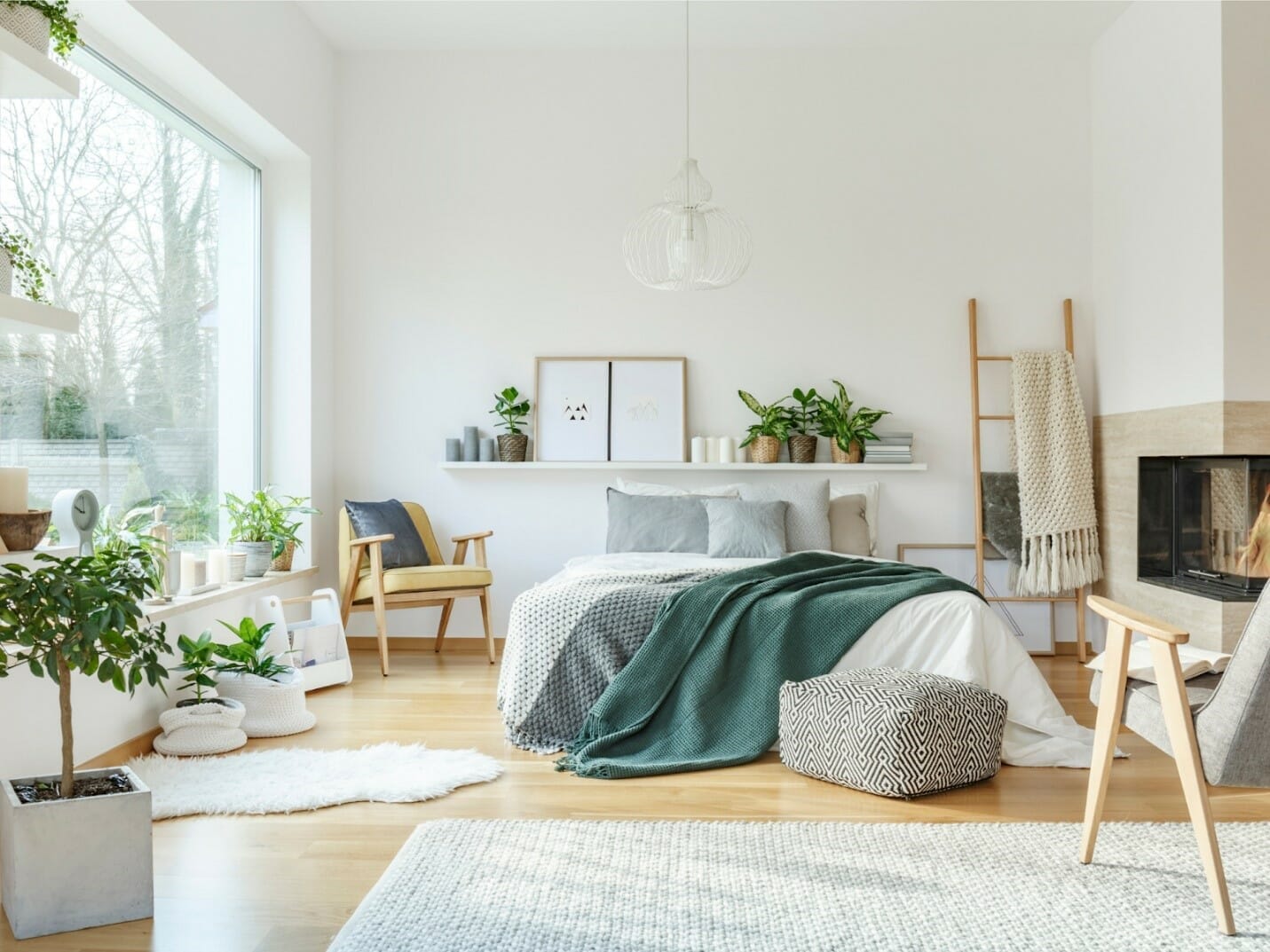
Is having a disorganized home such a big deal? Why not let people live how they want to live?
Having a clean, comfortable home affects people in different ways:

Keeping a clean, organized home is well worth all the physical, mental, emotional, and social benefits that come with it.

From sleep quality to infection control, cleanliness affects how well your body functions from day to day.
Here are a few ways keeping an orderly environment can help you physically:
Keeping a clean home reduces the risk of illness-causing pathogens being passed to residents of the home.
Food preparation areas should be sanitary, especially after handling raw meat.
Bathroom areas should be cleaned regularly, and animal waste should be taken care of to prevent disease.
People with cluttered homes are more likely to experience insomnia. It’s hard to know if it stems from increased stress levels, difficulty getting comfortable in a cluttered space, or from another cause, but cleaning up clutter should help you get a better
night’s sleep.
Allergies and asthma attacks can be triggered by dust, pet hair and dander, and mold. Keeping homes free of these triggers can improve allergy and asthma symptoms.

The state of your home can have profound effects on your mental state. A cluttered, disorganized space can stress and overwhelm us. Severely cluttered homes can also cause feelings of shame and anxiety. Here are a few ways keeping your home in order can help you function well mentally:
A clean, uncluttered space helps our minds stay on task without distraction. When we see more items in our line of sight, it can actually slow down our brain’s processing speed and make it more difficult to focus.
When we constantly look around us and see work that needs to be done, it’s difficult to feel calm. How can we relax when we’re surrounded by chaos? Maintaining a clean, organized space will create tranquility and peace-of-mind.
Setting your home in order can be empowering! When you are able to make your space look and feel the way you want it to be, you feel a sense of accomplishment.
When your home is constantly in good condition, you can depend on it as a place to relax and feel at peace. Regardless of what happens outside your home, you have a refuge where you can retreat from the world.
Creativity needs margin and blank space to grow. When your space is not distracting from your thought process, your brain can focus on new ideas.

Just as tasks requiring deep thought can be difficult when our homes are chaotic, our emotions can also be hard to settle when our environment is in upheaval. Here are some emotional benefits to improving the cleanliness of your home:
When you’re in a clean, comfortable environment, you feel better emotionally. Many studies show a relationship between messy homes and unhappiness.
Not only does being in a clean, restful environment contribute to being better able to focus and be mindful, the act of cleaning itself actually offers an opportunity to practice mindfulness. Being mindful of the task at hand can decrease feelings of anxiety and increase feelings of inspiration.
Emotional regulation is the ability to respond to your emotions mindfully. This skill can help you reframe negative emotions and cope with stress. When your home is less cluttered, you are better able to attend to your emotions and find peace.

Your home doesn’t only affect you—it also has an effect on the people around you. When your home is messy and disorganized, it can actually hinder your relationships. Here are some ways cleaning and organizing can benefit you socially:
Cleaning up can create a welcoming space for you to spend time with those you care about. When your home is messy and disorganized, it can be difficult, or even embarrassing, to host others.
You may feel embarrassed about the state of your home, or your friends may not be comfortable there due to cleanliness issues, a lack of seating due to spaces being taken up by clutter, and so on.
When your home is clean and uncluttered, there is space for family to come and stay. Even if you need to set up cots or sleeping bags to accommodate extra guests, they can still be comfortable with you. With a clean floor and stored belongings, this can become a reality.
In severe cases, disorganization and lack of cleanliness can lead to structural issues with your home. Appliances may fall into disrepair and become hazardous, or the home’s structure can even be compromised by the weight of your belongings.
When your things are in order, there is no danger of needing to relocate. However, when your things are in order, there is no danger of being forced to relocate. That stress is non-existent. At a certain point, a health inspector could become involved.

Everyone can improve the state of their homes—we all struggle to keep things clean and hang on to only the possessions we really need.
However, when we take the necessary steps to tidy up and declutter, we can see benefits in many different areas of our lives: physically, mentally, emotionally, and socially.
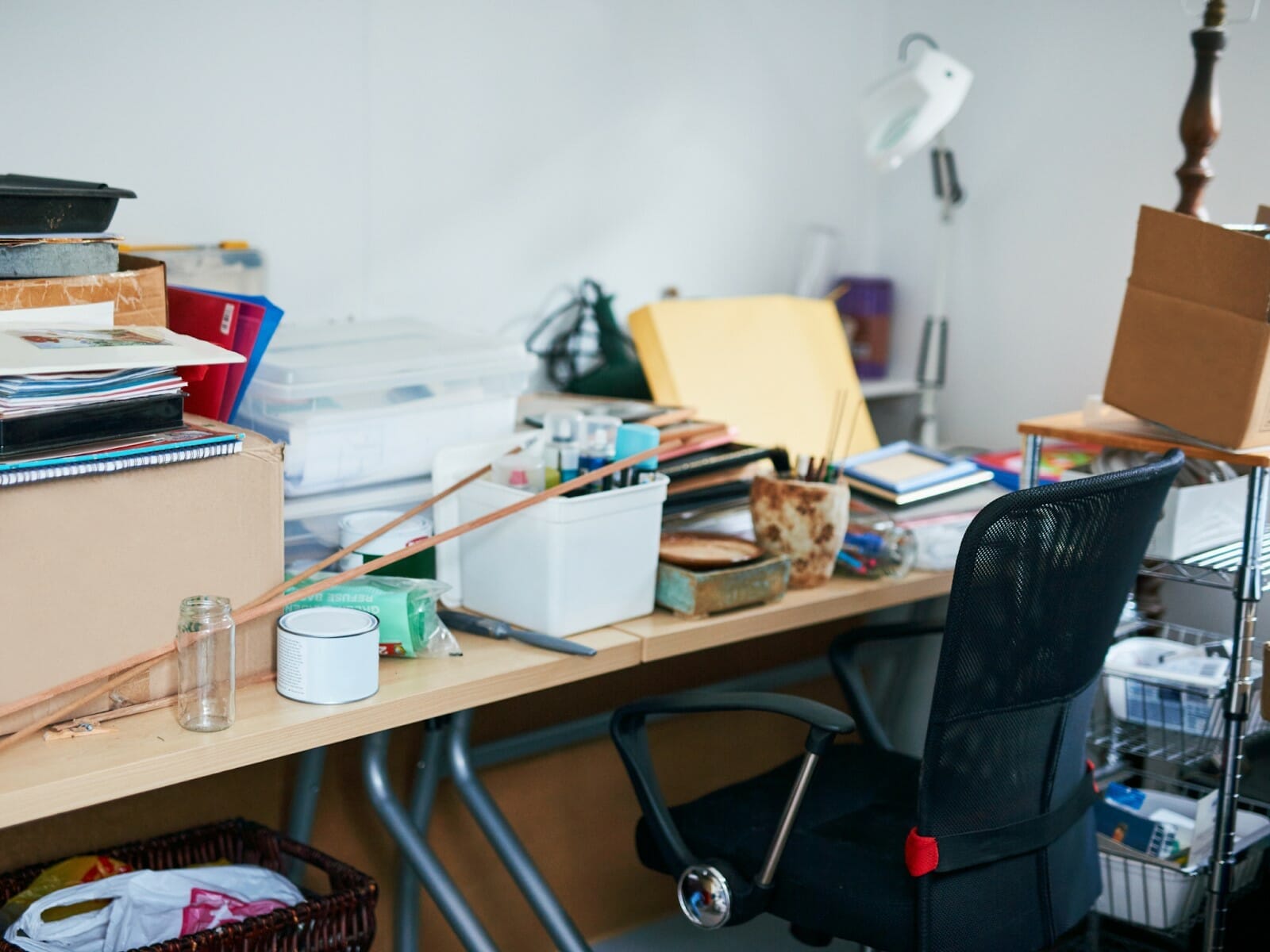
There are varied reasons people hang on to things they don’t need based on their circumstances or deeper-lying struggles. A cluttered home—even one that would qualify as a Level 5 situation—doesn’t stem from laziness or lack of willpower.
More often than not, a cluttered home is the result of a difficult-to-control situation, which is part of normal life.
What’s the source of your clutter? Following, are a few factors that may be contributing to your at-home clutter:
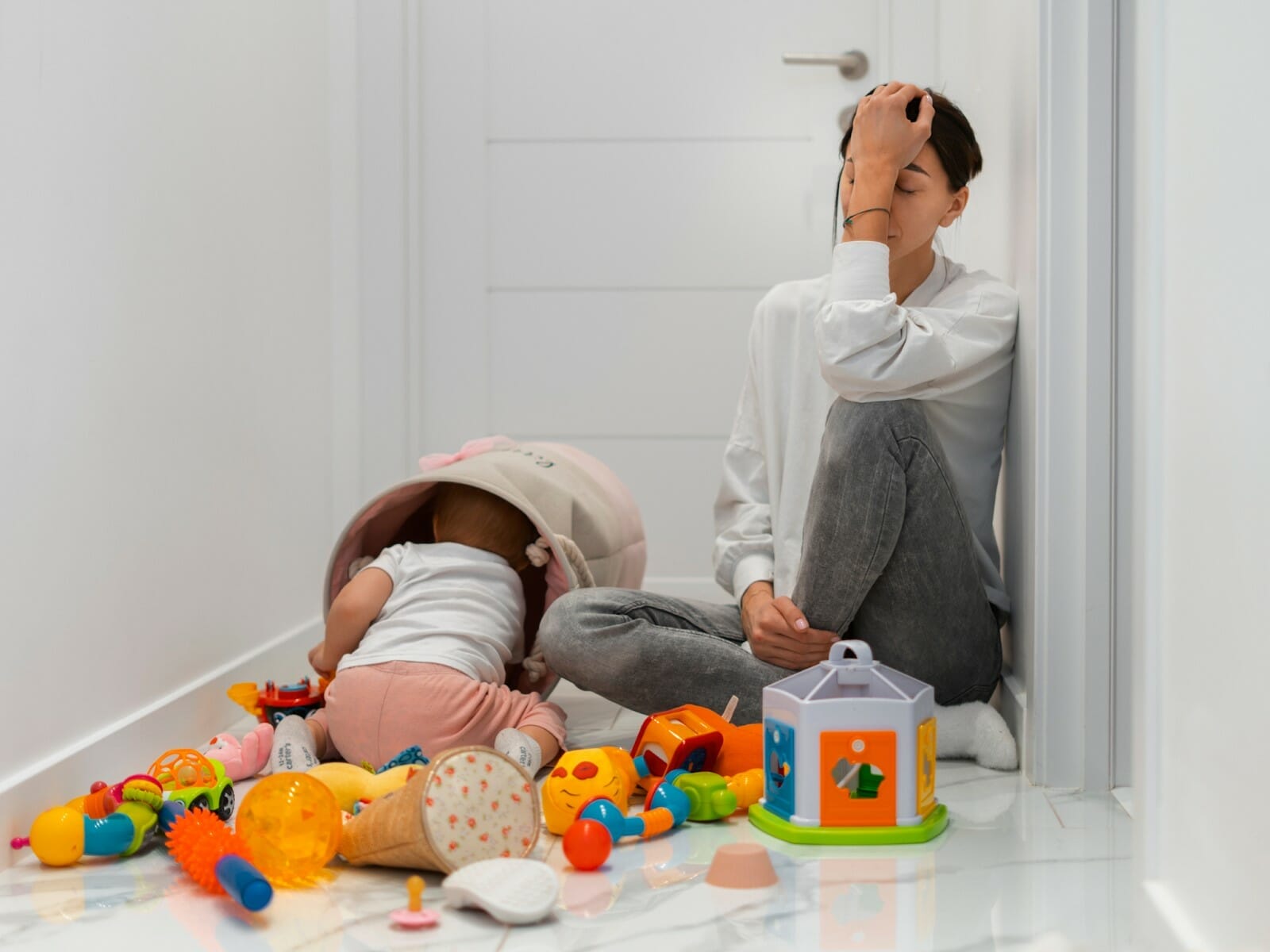
Having children can bring an abundance of joy, but also plenty of clutter.
Baby gear that is only used for a short period of time, rapidly changing clothes sizes, and piles of toys accumulate quickly.
It doesn’t end with the baby phase, though. As all guardians know, older kids and teens bring their own messes into the home.
Food-related messes combined with sleep deprivation can make it difficult to keep up with housework.
With children leaving clutter everywhere and food-related messes needing immediate care, it can be difficult to keep up with housework. Especially when you consider the sleep deprivation that also comes with kids.
Between art and science projects on the counter and smelly gym bags and laundry
left around the house, things can get (or stay!) messy.
It doesn’t help that children aren’t well-known for cleaning up after themselves!
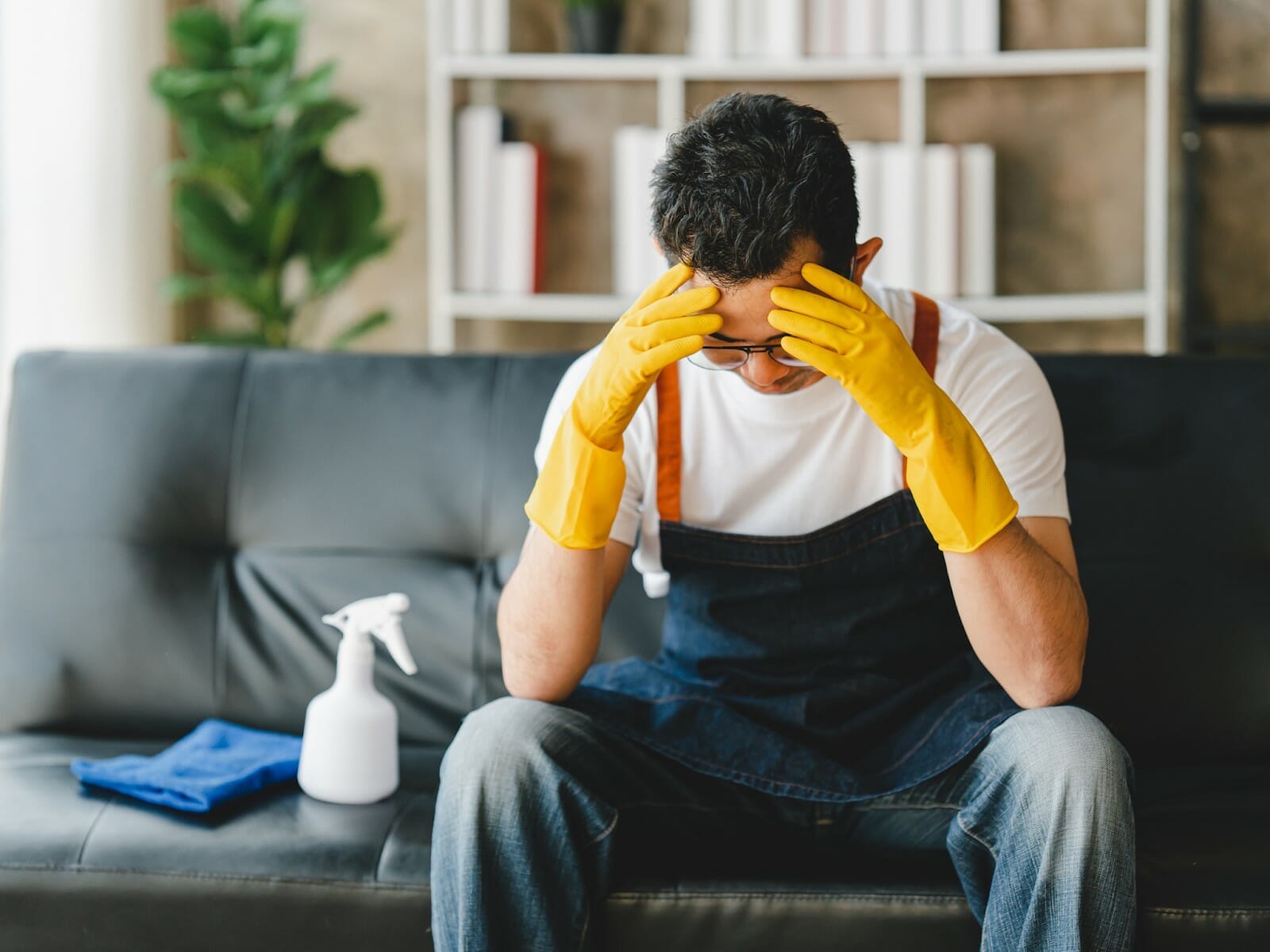
As adults age, they may struggle to keep up with their housework.
Think of all the reaching and bending over. Consider all the hard scrubbing. With health issues, simple cleaning tasks take much longer to accomplish, if it can still be done.
Decreased mobility and increased health issues can make cleaning overwhelming or even impossible.
In addition, it can be difficult to let go of possessions accumulated over a lifetime.
Anxiety can make it difficult to throw away possessions.
People with anxiety may hold on to items in excess in case of a feared emergency or indecision about what to do with items.
Finding the motivation to clean and declutter is often a struggle for someone suffering from depression.
The stress of an out-of-control home situation (whether it’s actually out of control
or simply perceived to be) can create a negative feedback loop.
For example, maybe you’re struggling with depression and lack the motivation to do the dishes. This means the dishes quickly pile up and within a week or two every surface in your kitchen could be covered in dirty dishes.
Now, you’re facing an overwhelming mess that can make you feel even worse—piling on exhaustion, guilt, and shame—and making you even less likely to find the motivation to clean up.
This cycle can leave those struggling with depression feeling more overwhelmed and less able to approach their home situation.
Individuals with ADHD often have intense, passionate interests and may accumulate items related to that interest. In addition, it can be difficult for a person with ADHD to create and stay focused on a plan for a big cleaning project. Anytime there are multiple steps involved, it’s easy for people with ADHD to get distracted.
Obsessive-compulsive disorder is characterized by obsessive, intrusive thoughts and compulsive behaviors. People with OCD sometimes deal with anxieties and emergencies by compulsively buying items. They may have obsessions about running out of essential items or a buying ritual that is difficult to break out of.

Trauma can be a trigger for accumulating clutter. If someone grew up without:
They may feel driven to hold onto things rather than throw them away when they are no longer needed. Research shows that childhood emotional abuse and physical neglect in particular predict higher levels of hoarding symptoms.
People who have experienced loss may also accumulate possessions to soothe the ache of missing their loved one. Buying new things triggers a brief dopamine high, bringing temporary emotional relief.
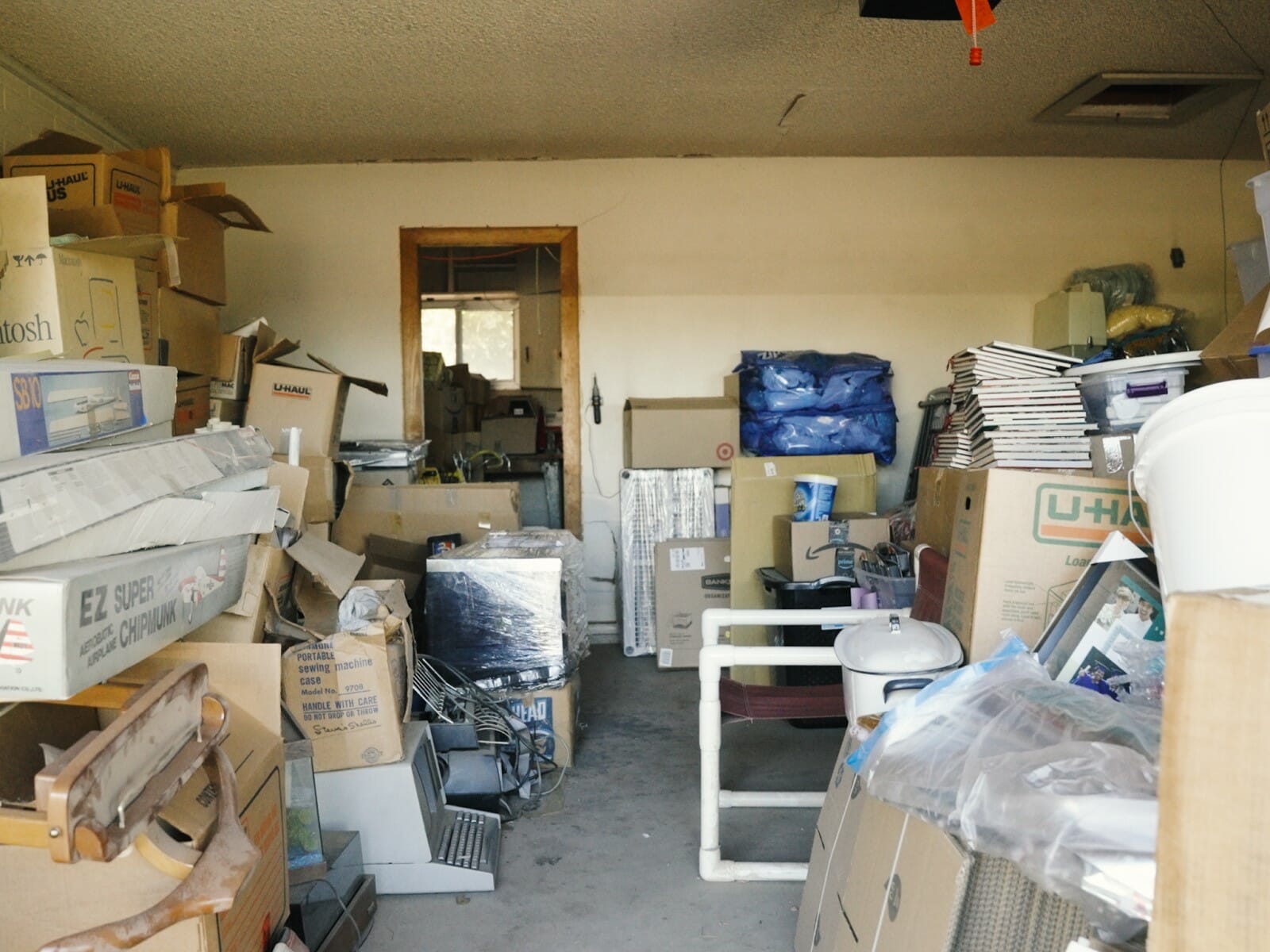
If you grew up in a home where clutter was common, you are more likely to show these behaviors yourself. You may have a genetic disposition toward it through related diagnoses like anxiety or depression. You may also be more used to an environment where clutter, mess, and even the higher levels of hoarding are the norm.

No matter the reason clutter starts, it’s normal to feel overwhelmed and stressed by the situation. Home maintenance is a big task under any conditions. Certain factors can make the situation feel impossible such as:
Stress can lead to disorganized homes, and disorganized homes can increase stress. Natalie Christine Dattilo, PhD, clinical health psychologist and instructor of psychiatry at Harvard Medical School, calls it a chicken-or-egg dilemma.

“Recent studies have shown that clutter in our homes is associated with higher cortisol levels [our stress hormone], but it’s still unclear which comes first,” says Dattilo.
“Is it that when we are under stress, our ability to maintain a well-organized home becomes impaired? Or when our home is in disarray, does that make us feel more stressed, overwhelmed, and anxious?”
Regardless of the root of the issue, there is a way out. Resources are available to help you deal with your home situation. Bio-One can help! Our services can help ease your stress. For more information on how we can help you with your clutter call (408) 309-3866.